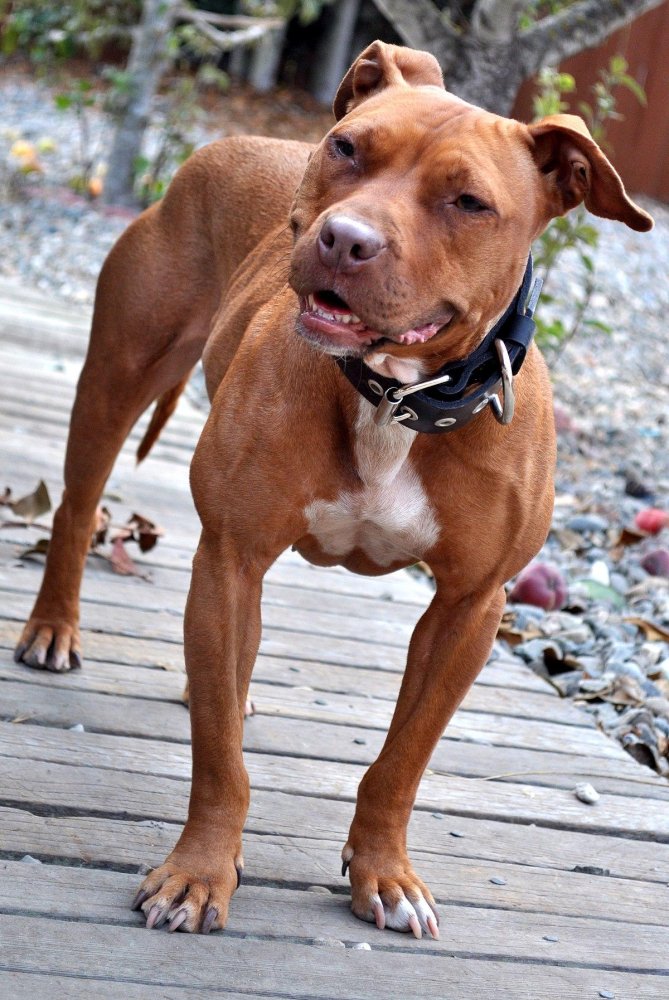- Breed Category: Terrier
- Country of Origin: United States
- Average Height: Males 45-53 cm, Females 43-50 cm
- Average Weight: Males 16-30 kg, Females 14-27 kg
- Average Life Span: 12-16 years
- Grooming Requirements: Low, occasional brushing
- Exercise Requirements: High, daily exercise needed
- Coat Type: Short and smooth
- Coat Color Variations: Various, including brindle, black, white
- Shedding Level: Moderate
- Ear Type: Rose or half-pricked
- Tail Type: Tapered and medium length
- Temperament: Loyal, affectionate, courageous
- Intelligence Level: High
- Barking Tendency: Low to moderate
- Compatibility with Children: Generally good with proper training
- Compatibility with Other Pets: Varies, early socialisation important
- Training Ease: Moderate, requires consistent training
- Common Health Issues: Hip dysplasia, allergies, heart disease
- Dietary Needs: High-quality diet, protein-rich
- Energy Level: Very high
- Drooling Tendency: Low
- Sensitivity to Weather: Sensitive to cold
- Overall Maintenance Level: Moderate
- Original Purpose: Bull-baiting, farm work
- Year of Recognition by Kennel Clubs: Not recognised by AKC
- Famous Breed Representatives: Petey from “The Little Rascals”
- Apartment Friendly: Yes, with sufficient exercise
- Best Suited For: Active families, experienced owners
- Cost of Ownership: Moderate to high
- Unique Traits: Strong jaw, muscular build
- Cultural Significance: Symbol of resilience and loyalty
- Popularity Rank: Popular in various regions
Ever wondered what makes the American Pit Bull Terrier stand out in the canine world? This breed, often misunderstood, is a fascinating mix of strength, loyalty, and intelligence. Originating in the 19th century, these dogs were initially bred for bull-baiting and later as farm dogs. Today, they are cherished companions known for their affectionate nature and protective instincts.
In this article, we’ll dive into the unique characteristics that define the American Pit Bull Terrier, explore its rich history, and provide insights into the best care practices. Whether you’re considering bringing one into your home or simply curious about this remarkable breed, you’ll find valuable information to guide your understanding and appreciation of these incredible dogs.
History and Origin of the American Pit Bull Terrier
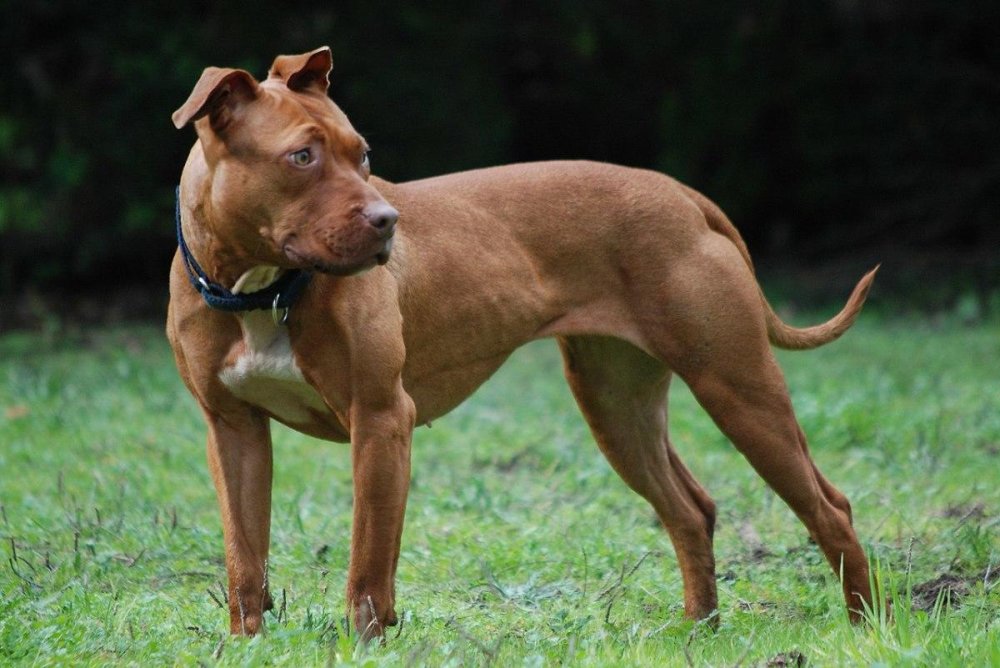
Early Development of the Breed
The American Pit Bull Terrier’s roots trace back to the early 19th century in England, where bulldogs and terriers were crossbred to create a dog with both strength and agility. These dogs were initially used in blood sports like bull-baiting, but as these activities were outlawed, their role shifted to farm work and companionship. Their tenacity and intelligence made them ideal for various tasks, from herding livestock to guarding property.
Role in American History and Culture
As these dogs made their way to America, they quickly became a symbol of resilience and loyalty. During the early 20th century, they were often featured in advertisements and even served as mascots for the military. Their image as a “nanny dog” highlighted their gentle nature with children, contrasting with the tough exterior they were known for.
Key Historical Figures
Several key figures played a role in shaping the breed’s reputation. Notably, Helen Keller owned a Pit Bull, showcasing their suitability as companions. Additionally, Sergeant Stubby, a Pit Bull mix, became a decorated war hero during World War I, further cementing the breed’s place in American history.
Physical Characteristics of the American Pit Bull Terrier

Appearance
The American Pit Bull Terrier is a medium-sized dog, typically weighing between 13 to 27 kilograms. They have a short, smooth coat that comes in a variety of colours, including black, white, brindle, and fawn. Some even sport distinctive markings like patches or spots, adding to their unique charm. Their eyes are round and expressive, often reflecting their alert and intelligent nature.
Unique Physical Traits
One of the standout features of this breed is their strong, muscular build. They have a broad chest and a powerful stance, which speaks to their history as working dogs. Despite their robust appearance, they are incredibly agile and quick on their feet. Their ears can be either cropped or left natural, and their tails are typically long and tapering. This combination of strength and agility makes them not only impressive to look at but also highly capable in various activities.
Temperament and Behaviour of the American Pit Bull Terrier
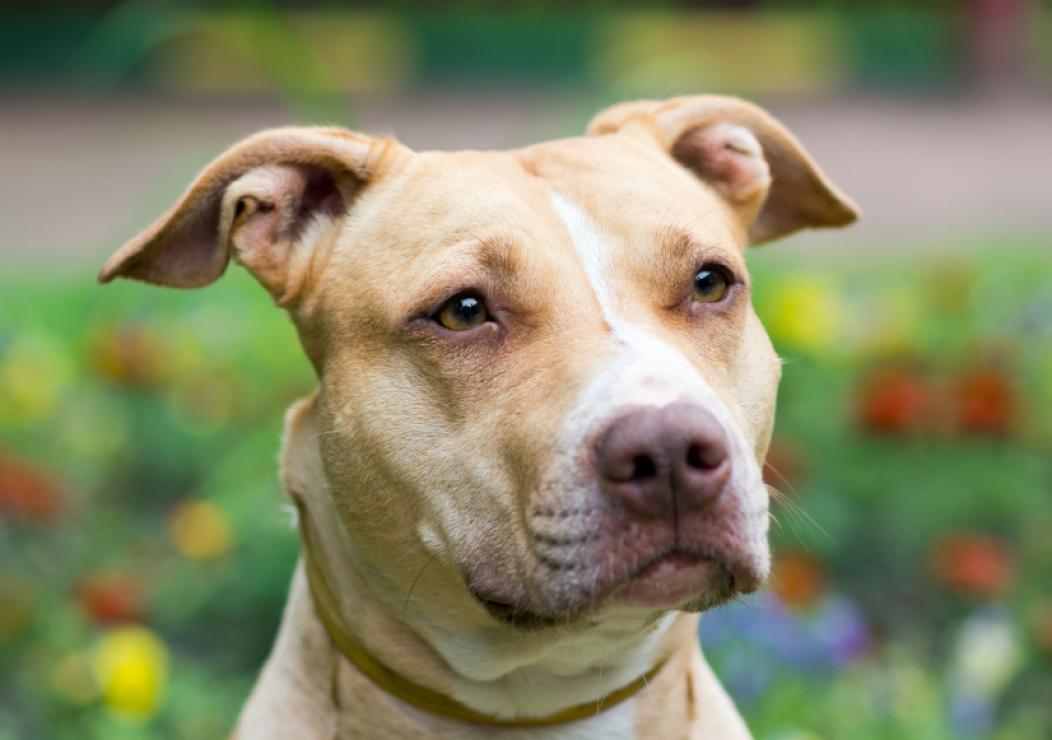
Typical Personality Traits
American Pit Bull Terriers are known for their loyalty and intelligence. They form strong bonds with their families and are eager to please, making them highly trainable. Their energy levels are high, so they thrive in active households where they can engage in regular exercise and play. This breed is often misunderstood, but those who know them well appreciate their affectionate and protective nature.
Suitability as a Family Pet and Working Dog
These dogs are versatile, excelling both as family pets and working dogs. Their history as farm dogs means they are well-suited to tasks that require strength and determination. As family pets, they are loving and devoted, often forming close relationships with all family members. Their protective instincts make them excellent watchdogs, while their playful side ensures they are fun companions.
Interaction with Children and Other Animals
American Pit Bull Terriers are often referred to as “nanny dogs” due to their gentle and patient nature with children. They are generally good with kids, provided they are properly socialised and trained. When it comes to other animals, early socialisation is key. With the right introduction, they can coexist peacefully with other pets, although supervision is recommended, especially with smaller animals.
Training and Exercise Needs of the American Pit Bull Terrier

Importance of Early Training and Socialisation
Getting a head start on training and socialisation is crucial for American Pit Bull Terriers. Early exposure to different environments, people, and other animals helps them grow into well-rounded adults. This breed is naturally intelligent and eager to learn, so starting young sets the foundation for a well-behaved companion.
Recommended Training Techniques
Positive reinforcement is the way to go with these dogs. They respond well to praise, treats, and playtime as rewards. Consistency is key, so keep training sessions regular and engaging. Avoid harsh methods, as they can lead to fear or aggression. Instead, focus on building trust and a strong bond through patience and understanding.
Daily Exercise Requirements and Activities They Enjoy
American Pit Bull Terriers are energetic and need plenty of daily exercise to stay happy and healthy. Aim for at least an hour of physical activity each day. They love activities like fetch, agility courses, and long walks. Mental stimulation is just as important, so consider puzzle toys or obedience training to keep their minds sharp.
Health and Lifespan of the American Pit Bull Terrier
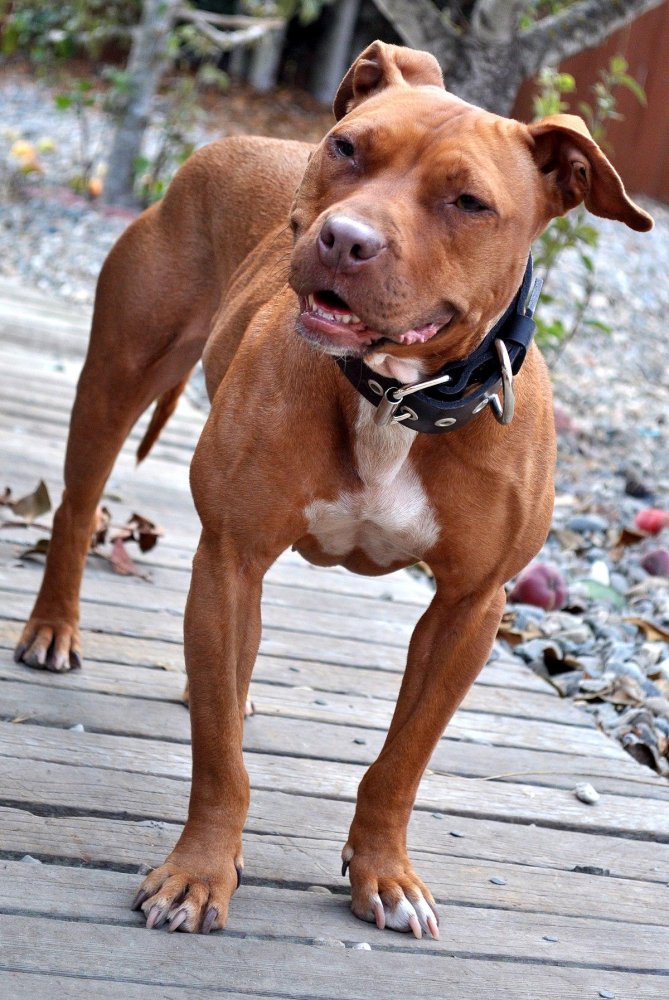
Common Health Issues
American Pit Bull Terriers are generally healthy, but like any breed, they can be prone to certain health issues. Hip dysplasia is a common concern, where the hip joint doesn’t fit together perfectly, leading to arthritis over time. Skin allergies are also prevalent, often caused by environmental factors or food sensitivities. Regular vet check-ups can help catch these issues early.
Average Lifespan and Health Tips
With proper care, these dogs typically live between 12 to 16 years. To keep them healthy, a balanced diet and regular exercise are essential. Maintaining a healthy weight can prevent joint problems and other health issues. Regular grooming, including ear cleaning and nail trimming, also contributes to their overall well-being.
Preventative Care Recommendations
- Schedule regular veterinary visits for vaccinations and health screenings.
- Provide a nutritious diet tailored to their age and activity level.
- Ensure they get plenty of exercise to keep their muscles strong and their minds sharp.
- Practice good dental hygiene with regular teeth brushing.
- Monitor for any signs of allergies or skin issues and consult a vet if needed.
Grooming and Maintenance of the American Pit Bull Terrier
Coat Care and Grooming Routines
The American Pit Bull Terrier sports a short, smooth coat that’s relatively low-maintenance. Regular brushing, about once a week, helps keep their coat shiny and healthy. A soft-bristle brush or grooming mitt works wonders in removing loose hair and distributing natural oils. Bathing should be occasional, only when they get particularly dirty or start to smell. Over-bathing can strip their coat of essential oils, so it’s best to keep it minimal.
Shedding and Seasonal Grooming Tips
While they don’t shed excessively, you might notice an uptick during seasonal changes. During these times, increase brushing frequency to manage shedding and keep your home fur-free. A lint roller or pet hair remover can be handy for furniture and clothing. Regular grooming not only keeps their coat in top condition but also provides an opportunity to check for any skin issues or parasites. Remember, a well-groomed Pit Bull is a happy Pit Bull!
Diet and Nutrition for the American Pit Bull Terrier

Nutritional Needs for Optimal Health
Feeding your American Pit Bull Terrier a balanced diet is crucial for their health and vitality. These dogs need a mix of proteins, fats, and carbohydrates to fuel their active lifestyle. High-quality dog food with real meat as the first ingredient is a great start. Look for options that include essential fatty acids, like omega-3 and omega-6, to support their skin and coat health.
Foods to Include and Avoid
Include lean meats, fish, and vegetables in their diet for a well-rounded nutritional profile. Avoid foods with artificial additives, fillers, and excessive grains, as these can lead to allergies or digestive issues. Be cautious with treats; opt for natural options like carrot sticks or apple slices instead of processed snacks.
Feeding Schedules and Portion Recommendations
Establishing a consistent feeding schedule helps maintain their energy levels and prevents overeating. Typically, two meals a day—morning and evening—works well for adult Pit Bulls. Puppies may require more frequent meals. Portion sizes depend on their age, weight, and activity level, so consult your vet for personalised advice. Remember, a healthy diet is key to a happy, energetic Pit Bull!
Fun Facts and Trivia about the American Pit Bull Terrier
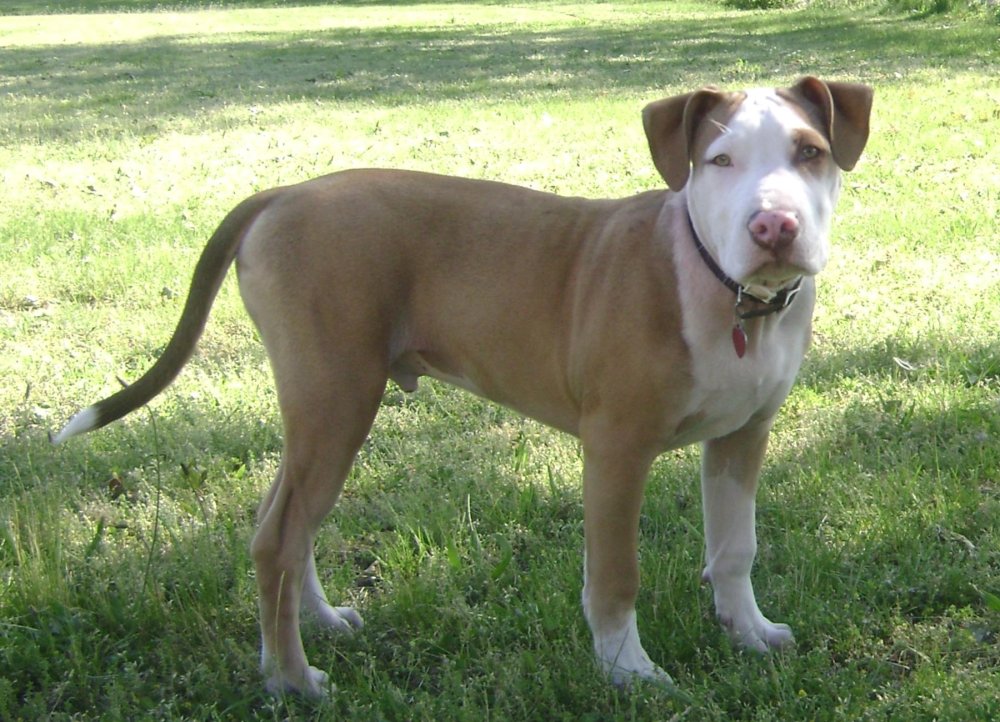
Interesting Tidbits about the Breed
Did you know that American Pit Bull Terriers have a history as “nanny dogs”? This nickname comes from their gentle and protective nature around children. Despite their tough appearance, they are known for their affectionate and loyal temperament. Another fun fact is their impressive athleticism. These dogs excel in agility and obedience competitions, showcasing their intelligence and eagerness to please.
Famous American Pit Bull Terriers in Media or History
American Pit Bull Terriers have made their mark in history and media. One of the most famous is Sergeant Stubby, a decorated war hero from World War I. Stubby was a Pit Bull mix who served alongside soldiers, warning them of gas attacks and even capturing a German spy. In the world of entertainment, Petey from “The Little Rascals” was a beloved Pit Bull, known for his distinctive eye patch and playful antics. These stories highlight the breed’s versatility and charm.
Final Thoughts
The American Pit Bull Terrier is a remarkable blend of strength and loyalty. This breed’s history and characteristics make it a unique and cherished companion. While they require dedicated training and exercise, the rewards of owning such a loyal and intelligent dog are immense. Embracing their affectionate nature and understanding their needs can lead to a fulfilling relationship. Consider adopting an American Pit Bull Terrier and experience the joy of a devoted and energetic companion.
